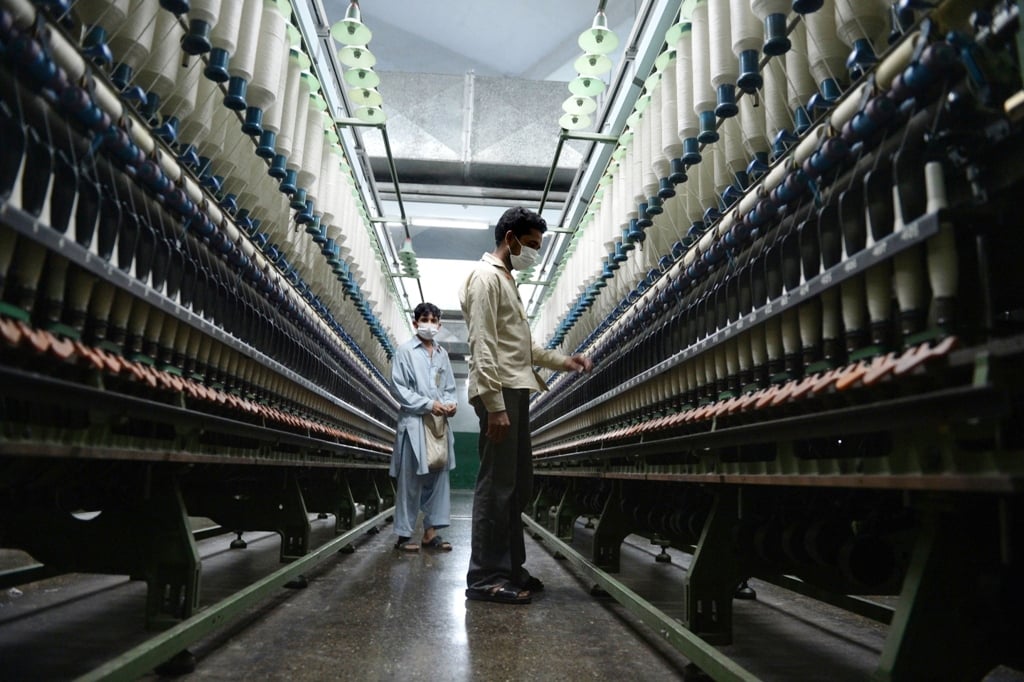ISLAMABAD:
The output in Pakistan’s big industries shrank 7.9% year-on-year, as the country’s manufacturing sector faces one of the worst times due to a shortage of raw material, expensive credit and an unfavourable business climate.
The Pakistan Bureau of Statistics (PBS) on Tuesday released figures for Large-Scale Manufacturing (LSM) industries that showed how badly Pakistan’s industrial sector – a major tax contributor – has fared in the prevailing economic conditions.
According to the data released, the pace of growth in LSM industries decreased to 7.9% in January over a year ago. The sector is suffering because of restrictions imposed on imports that have caused a shortage of imported raw material. The steep currency devaluation has also made raw material expensive and business models unviable.
The International Monetary Fund (IMF) assessed that the pace of negative growth in big industries could have been slower had the government not imposed restrictions on imports. The central bank has issued the guidelines to commercial banks about the allocation of foreign currency for import purposes. The IMF is currently seeking a withdrawal of these guidelines but the central bank has not yet taken back its December 2022 circular.
In the meanwhile, the government is waiting for the IMF deal to materialise before it starts normalising imports. State Bank of Pakistan (SBP) Governor Jameel Ahmad said that import restrictions will be eased after the Staff Level Agreement (SLA) with the IMF. However, neither the governor nor Finance Minister Ishaq Dar have given a date for closing the deal with the IMF.
Earlier this month, the central bank also increased its interest rates to 20% – the highest in Pakistan’s history – in hopes of cinching an SLA. Sources say the IMF is demanding a further increase in the interest rates aimed at containing inflation currently hovering around at the highest level in 50 years.
The LSM trend indicates that this year that the overall Gross Domestic Product (GDP) growth rate may remain around 1% due to the shutdown of industries and adverse impact of the devastating floods on the agriculture sector. The government had targeted economic growth of 5.1% in the current fiscal year but the latest estimates – both by the IMF and the federal government – indicate that growth will be marginally in the positive territory.
Overall, the LSM output shrank 4.4% in the July-January period of fiscal year 2022-23, the PBS reported.
Since large industries contribute heavily to revenue collection and job creation, any change in their growth impacts the government and business sentiment across the board. The businesses are also facing demand for advance income taxes from the Federal Board of the Revenue (FBR), coupled with a slow release of genuine refunds (from non-exporting sectors).
The LSM sector contributes nearly one-tenth to total national output, however, a constant decline in the share and growth of LSM may cause a lot of problems for the government already struggling to create
new jobs.
The main contributors towards overall negative growth of 4.4% include the food sector that shrank marginally, the tobacco industry that also contracted by less than 1%, textile output which reduced by 2.7%, petroleum products and cement production dipped by less than 1% and the pharmaceuticals and automobiles – the two sectors hit hardest by the ban on imports – also shrank during the first seven months of the current fiscal year.
Production has increased in clothing, furniture and football sectors in the July-January 2022-23 period, compared to the July-January 2021-22.
While the textile sector – the largest sector in the LSM index – weight has been reduced from nearly 21% to 18.2% in the LSM index, any movement in the segment still impacts the overall sector’s growth significantly.
Published in The Express Tribune, March 15th, 2023.
Like Business on Facebook, follow @TribuneBiz on Twitter to stay informed and join in the conversation.















































